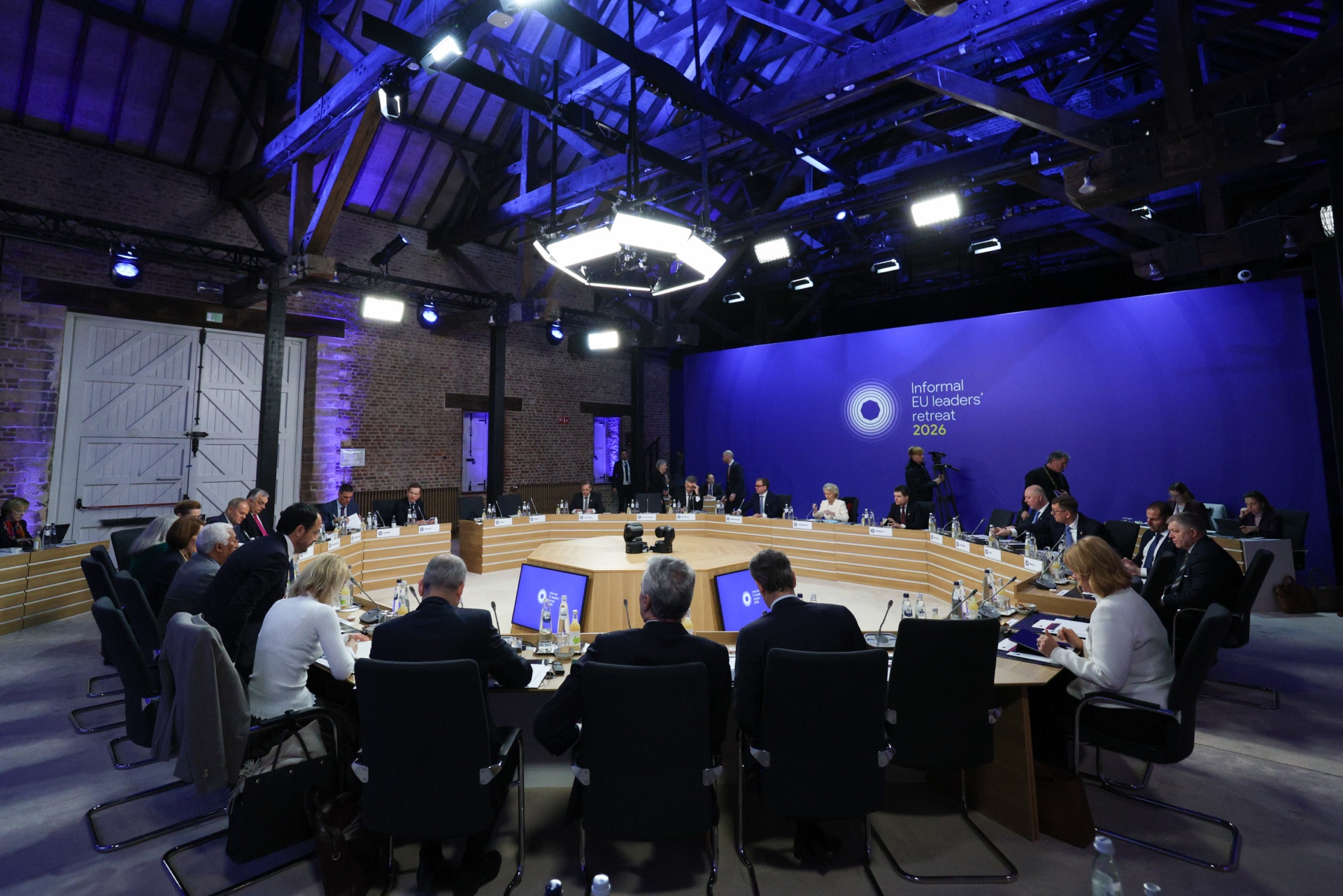This Wednesday, the EU announced temporary measures to erode the rights of asylum seekers, seen as an effort to appease the Polish, Latvian and Lithuanian governments, with the migrant death toll standing at least at 13. The changes to the law will allow Asylum seekers to be held for up to 16 weeks in detention facilities, whereas previous EU law had limited this to 4 weeks. That’s four times as long.
The states also have 4 weeks to register the asylum applications, rather than 10 days. The processes for deportation when claims are unsuccessful have also been streamlined, allowing for quicker removal.
The measures are harshened just as the situation seems by many accounts to be winding down. Last month saw the Belarusian government take thousands of migrants away from encampments near the border. Many migrants have also begun taking repatriation flights.
The international community has therefore taken issue with the disproportionate and misdirected response of the EU, inviting criticism from Human Rights organisations, including Amnesty International and Oxfam amongst others, immigration lawyers and Members of the European Parliament (MEPs).
What we hoped would happen: the EU Commission would see the threat to democracy & human rights posed by extremist leaders in Hungary & Poland, back core EU values & fight the threat.
What happened: They backed those leaders & joined them in undermining democracy & human rights.
— Andrew Stroehlein (@astroehlein) December 2, 2021
Dutch politician and MEP Sophie in ‘t Veld questioned how the pressure of a relatively few number of asylum seekers formed enough of an excuse to abandon established EU law. In a tweet, she asks why it was not “possible to manage a situation with a few thousand migrants with the regular instruments?” She also drew attention to the fact that measures were not required in the 2015 migrant crisis, in which numbers were significantly higher.
It is also worth noting that only 0.6% of the EU’s population consists of refugees, which is at odds with hyperbolic rhetoric warning of an invasion.
Worryingly, the material reception requirements, detailed in the EU legislature, will also be compromised. Under the current EU reception conditions directive, applicants must have access to “housing, food, clothing, health care, education for minors and access to employment.”
The law does allow for material conditions to be compromised in limited situations. Specifically when “an assessment of the specific needs of the applicant is required” or “housing capacities normally available are temporarily exhausted.”
The new EU proposal however expands the scope of discretion, in order to “extend the possibility to set different material reception conditions in the current situation of instrumentalisation of migrants.”
Although still requiring that “basic needs” are met, the measure sets a precedent of compromising the treatment of refugees every time a unique situation emerges.
The right to seek asylum at EU borders has been limited now to designated locations, providing challenges to migrants whose movements are already restricted
The measures also restrict the right to file an asylum claim to “specific registration points located at the vicinity of the border,” and leave it to the three border countries to “ensure that a sufficient number of registration points… are designated and open for such purpose[s].” And this without any attempt to specify what a “sufficient number” might be or how “vicinity to the border” is to be defined.
This may further endanger the migrants struggling to cope with the freezing, hypothermic conditions they are exposed to, which have worsened in recent days due to plummeting winter temperatures.
Already without access to food, shelter and medical necessities, or protection from the rain and snow, the introduction of “specific registration points” will require further movement of vulnerable people along unfamiliar terrain. As Euractiv points out, migrants “might be required to walk many more kilometres through the forests, lakes and swamps straddling the eastern rim of the EU and NATO.”
Another migrant died. The body of a 30-year-old man was found on the border between #Belarus and Lithuania. He was found in a sleeping bag, beaten. pic.twitter.com/a5YWg1inv1
— Hanna Liubakova (@HannaLiubakova) November 28, 2021
Whilst rightfully condemning Belarus, the EU fails to hold the Polish, Latvian, and Lithuanian Governments to account
The measures set out by the EU also do nothing to redress Poland, Latvia and Lithuania’s ongoing violation of human rights. Camino Mortera-Martínez, a senior research fellow at the Center for European Reform, speaking to the New York Times suggested that the measures were “rubber-stamping” the hostile behaviour towards migrants of all three countries.
Related articles: Poland-Belarus Border Crisis: Political Game Leaves Vulnerable People Trapped | Poland Doubles Down in its Fight Against European Law
Mortera-Martínez singled out “Poland, which has been breaking all asylum laws possible.” Poland, in the last few days, passed legislation extending the enforcement of exclusion zones, banning the access of media and NGOs to the border.
The prevention of aid workers to vulnerable, freezing and starving people (including children) stranded in exclusion zones has heavily exacerbated the humanitarian crisis.
Poland’s new Border Protection Act perpetuates many restrictive measures introduced by the state of emergency, with negative effects for humanitarian actors, media, #humanrightsdefenders and the local population on the eastern border.
Read my statement 👇https://t.co/5hkn6EaNT0
— Commissioner for Human Rights (@CommissionerHR) December 1, 2021
The media ban forces reliance on Polish and Belarusian officials, which journalists say allow disinformation to thrive, aiding the Belarusian propaganda efforts as well as hiding the humanitarian crisis from the eyes of the world.
This is in addition to the legalisation of push-backs which passed into Polish law last month, which further empowers Polish forces to ignore asylum claims and force migrants over the border and back into Belarus.
Push-backs are a set of state measures by which refugees and migrants are forced back over a border – generally immediately after they crossed it – without consideration of their individual circumstances and without any possibility to apply for asylum or to put forward arguments against the measures taken. Push-backs violate – among other laws – the prohibition of collective expulsions stipulated in the European Convention on Human Rights. – ECCHR definition of pushbacks
Although push-backs are considered to be against international law, they are increasingly common across the EU, and in recent months they have been enacted by Croatia and Greece. A Guardian investigation published in May this year claimed that “EU member states”, supported by Frontex, “used illegal operations to push back at least 40,000 asylum seekers” during the pandemic period, linking them to 2000 deaths.
Human Rights Watch has previously conducted interviews documenting harrowing cases of migrants with children pleading for asylum, only to be pushed back into Belarus. The news measures limiting the right to seek asylum to a few designated spots, and the EU’s refusal on Wednesday to comment on the push-backs, further enables the neglect and mistreatment of migrants for Polish and Belarusian political ends.
Tensions between internal EU bodies
The measures still have to be confirmed by the European Council, which is an EU body consisting of the leaders of each of the 27 member states. The European Parliament only has a consulting role, and the grievances expressed by MEPs condemning the measures are unlikely to hold much sway over the decision.
The use of an EU article that does not give the European Parliament the ability to reject the proposal may lead to tensions. MEPs like Sophie in ‘t Veld have spoken out over the diminishing role of Parliament in holding the EU Commission to account and thus providing the democratic function of checks and balances.
She accuses the Commission of becoming “subservient to the intergovernmental order,” and not holding member states to account for breaching EU law, “in order to avoid conflicts with national governments.” The criticisms appear to be completely accurate here as the EU has in fact enabled the abuse of migrant rights rather than condemning the governments involved.
Instead, the EU Commission has set up measures that assure the three governments of the EU’s support, supposedly providing “legal clarity” for their actions. They prioritise political interests over the commitment to the standards the original directives upheld. With this, the world suddenly learns that EU commitments to human rights, in the face of political disputes, are far more fragile than expected. One may well wonder what has happened to “European core values”?
Editor’s Note: The opinions expressed here by Impakter.com columnists are their own, not those of Impakter.com. — In the Featured Photo: Flags of the member states of the European Union in front of the EU-commission building “Berlaymont” in Brussels, Belgium. Photo Credit: Christian Lue.













